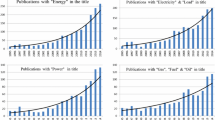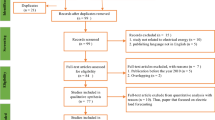Abstract
This paper presents short-term load forecasting models, which are developed by using fuzzy logic and adaptive neuro-fuzzy inference system (ANFIS). Firstly, historical data are analyzed and weekdays are grouped according to their load characteristics. Then, historical load, temperature difference and season are selected as inputs. In general literature, fuzzy logic hourly load forecasts are tested in the range a few days or a few weeks. Unlike previous studies, the hourly load forecast is carried out for 1 year. This paper shows that fuzzy logic can give good results in very large test data sets for 1 year. Besides, for countries with large areas, the temperature data taken from only one point would lead to increase the forecasting errors. Therefore, the average of temperature for six cities having the maximum power consumption is weighted average. The mean absolute percentage errors of the fuzzy logic and ANFIS models in terms of prediction accuracy are obtained as 2.1 and 1.85, respectively. The results show that the proposed fuzzy logic and ANFIS models are capable of load forecasting efficiently and produce very close values to the actual data and are the alternative way for short-term load forecasting in Turkey.













Similar content being viewed by others
References
Al-Kandari A, Soliman S, El-Hawary M (2004) Fuzzy short-term electric load forecasting. Int J Electr Power Energy Syst 26(2):111–122
Feinberg EA, Genethliou D (2005) Load forecasting. Applied mathematics for restructured electric power systems, chap 12. Springer, New York, pp 269–285
Fan S, Hyndman RJ (2012) Short-term load forecasting based on a semi-parametric additive model. Power Syst IEEE Trans 27(1):134–141
Electricity Market Balancing and Settlement Regulation (2009) Official Gazette of the Republic of Turkey No. 27200
Toker AC, Korkmaz O (2011) Türkiye Kısa Süreli Elektrik Talebinin Saatlik Olarak Tahmin Edilmesi. 17.Uluslararası Enerji ve Çevre Konferansı, İstanbul: 32–35
Dordonnat V, Koopman SJ, Ooms M, Dessertaine A, Collet J (2008) An hourly periodic state space model for modelling French national electricity load. Int J Forecast 24(4):566–587
Soares LJ, Medeiros MC (2008) Modeling and forecasting short-term electricity load: a comparison of methods with an application to Brazilian data. Int J Forecast 24(4):630–644
Cancelo JR, Espasa A, Grafe R (2008) Forecasting the electricity load from one day to one week ahead for the Spanish system operator. Int J Forecast 24(4):588–602
Kuusisto S, Lehtokangas M, Saarinen J, Kaski K (1997) Short term electric load forecasting using a neural network with fuzzy hidden neurons. Neural Comput Appl 6(1):42–56
Chiang CC, Ho MC, Chen JA (2006) A hybrid approach of neural networks and grey modeling for adaptive electricity load forecasting. Neural Comput Appl 15(3–4):328–338
Çunkaş M, Altun A (2010) Long term electricity demand forecasting in Turkey using artificial neural networks. Energy Sour Part B 5(3):279–289
Demiroren A, Ceylan G (2006) Middle anatolian region short-term load forecasting using artificial neural networks. Electr Power Compon Syst 34(6):707–724
Sousa JC, Jorge HM, Neves LP (2013) Short-term load forecasting based on support vector regression and load profiling. Int J Energy Res 38(3):350–362
Mamlook R, Badran O, Abdulhadi E (2009) A fuzzy inference model for short-term load forecasting. Energy Policy 37(4):1239–1248
Pandian SC, Duraiswamy K, Rajan CCR, Kanagaraj N (2006) Fuzzy approach for short term load forecasting. Electr Power Syst Res 76(6–7):541–548
Aggarwal S, Kumar M, Saini LM, Kumar A (2011) Short-term load forecasting in deregulated electricity markets using fuzzy approach. J Eng Technol 1(1):24–31
Ying LC, Pan MC (2008) Using adaptive network based fuzzy inference system to forecast regional electricity loads. Energy Convers Manag 49(2):205–211
Mordjaoui M, Boudjema B, Bouabaz M, Daira R (2009) Short term electric load forecasting using Neuro-fuzzy modeling for nonlinear system identification. In: Proceeding of the 3rd conference on nonlinear science and complexity, Ankara, Turkey, pp 1–6
Kebriaei H, Araabi BN, Rahimi-Kian A (2011) Short-term load forecasting with a new nonsymmetric penalty function. IEEE Trans Power Syst 26(4):1817–1825
Çunkaş M, Taşkiran U (2011) Turkey’s electricity consumption forecasting using genetic programming. Energy Sour Part B 6(4):406–416
Song KB, Ha SK, Park JW, Kweon DJ, Kim KH (2006) Hybrid load forecasting method with analysis of temperature sensitivities. IEEE Trans Power Syst 21(2):869–876
Papadakis SE, Theocharis J, Bakirtzis A (2003) A load curve based fuzzy modeling technique for short-term load forecasting. Fuzzy Sets Syst 135(2):279–303
Erkmen I, Ozdogan A (1997) Short term load forecasting using genetically optimized neural network cascaded with a modified Kohonen clustering process. In: Intelligent control, proceedings of the IEEE international symposium, Istanbul, Turkey, pp 107–112
Topalli AK, Erkmen I (2003) A hybrid learning for neural networks applied to short term load forecasting. Neurocomputing 51:495–500
Erkmen I, Topalli A (2003) Four methods for short-term load forecasting using the benefits of artificial intelligence. Electr Eng 85(4):229–233
Topalli AK, Erkmen I, Topalli I (2006) Intelligent short-term load forecasting in Turkey. Int J Electr Power Energy Syst 28(7):437–447
Bilgic M, Girep CP, Aslanoğlu SY, Koksal MA (2010) Forecasting Turkey’s short term hourly load with artificial neural networks. In: Transmission and distribution conference and exposition IEEE PES, New Orleans, USA, pp 1–7
Filik UB, Gerek ON, Kurban M (2011) Hourly forecasting of long term electric energy demand using novel mathematical models and neural networks. Int J Innov Comput Inf Control 7(6):3545–3557
Esener I, Yüksel T, Kurban M (2013) Short-term load forecasting without meteorological data using AI based structures. Turk J Electr Eng Comput Sci
Soliman SA, Al-Kandari AM (2010) Electrical load forecasting: modeling and model construction. Elsevier, Amsterdam
Çevik HH (2013) Short term electrical load forecasting of Turkey. MSc Thesis, Selçuk University, Graduate School of Natural and Applied Sciences Institute of Science, Konya, Turkey
Escobar AM, Perez LP (2008) Application of support vector machines and ANFIS to the short-term load forecasting. Transmission and distribution conference and exposition Latin America: 1–5
Talebizadeh M, Moridnejad A (2011) Uncertainty analysis for the forecast of lake level fluctuations using ensembles of ANN and ANFIS models. Expert Syst Appl 38(4):4126–4135
Author information
Authors and Affiliations
Corresponding author
Rights and permissions
About this article
Cite this article
Çevik, H.H., Çunkaş, M. Short-term load forecasting using fuzzy logic and ANFIS. Neural Comput & Applic 26, 1355–1367 (2015). https://doi.org/10.1007/s00521-014-1809-4
Received:
Accepted:
Published:
Issue Date:
DOI: https://doi.org/10.1007/s00521-014-1809-4




